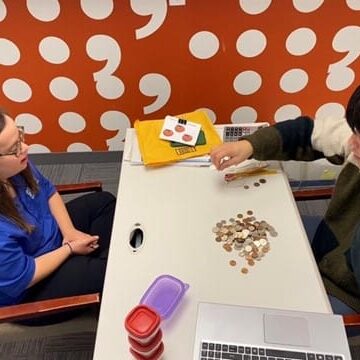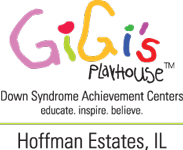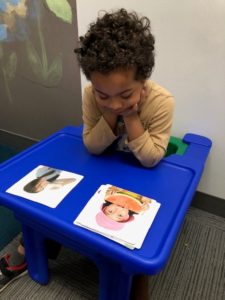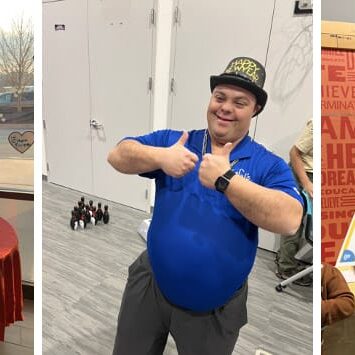Why is Speech Therapy Important?
Why is speech therapy important?
I get this question quite often. The answer is VERY! The importance and value of speech in all individuals cannot be underestimated. Do you remember playing the game of telephone as a kid? Hoping the message wouldn’t get garbled up along the way? You wanted your message to be clear. Articulate. Understood. This is want we want for our children in every interaction that they EVER have. Therefore, we need to provide speech and language services. Speech and language is how they learn about the world and develop key cognitive and socio-emotional skills.
What do speech and language skills look like in children with Down syndrome?
Children who have Down syndrome will typically experience challenges with speech and language skills across their lifespan—however, the challenges will vary quite a bit among individuals. It’s important to note that the speech and language skills of a child with Down syndrome are simply consider delayed… not different! They follow the same pattern of development, just at a different rate of acquisition. There are no “specific” speech and language traits unique to individuals with Down syndrome.
Children with Down syndrome do have differences in their anatomy and physiology that affect speech and feeding skills, such as low tone, small maxilla (upper jaw bone), small oral cavities, and small ears and ear canals. Because of these differences in the oral features, we see oral-motor deficits which impacts feeding, especially in infancy, as well as difficulty with speech intelligibly in later years. All these tiny muscles need stimulation and work to execute the fine movements required to chew our food, coordinate swallowing and breathing, figuring out appropriate bite sizes, etc. for feeding. Think about figuring out the placement of the soft palate and lips for the sound /m/ to allow airflow to the nasal cavity, which needs to quickly change to produce the /o/ sound, then needs to rearrange the lips, palate, air pressure, and tongue position again for the /p/ sound… all in less than 1 second… for the word “mop”! Now imagine beyond the word mop… full conversations! It’s a lot of work, and fine movement work, that the oral muscles are doing to produce speech.
So… is speech and language really that important?
YES! Nobody’s communication profile, or “road” will look identical, but with the right interventions and support, individuals with Down syndrome are able to develop lifelong effective communication skills!
-Taylor Kent
Find out more about the Amina Grace Speech and Language Program HERE.
To learn more…
Kumin, L. Bethesda, MD (2003). Early Communication Skills for Children with Down Syndrome. Woodbine House. (See more at: http://www.ndss.org/Resources/Therapies-Development/Speech-Language-Therapy/Speech-Language-Therapy-for-Infants-Toddlers-Young-Children/#sthash.hakY3Jqp.dpuf
Kumin, L. (1998). Comprehensive Speech and Language Treatment for Infants, Toddlers and Children with Down Syndrome. Down Syndrome: A Promising Future, Together. Wiley-Liss, Inc.
Recent Posts




